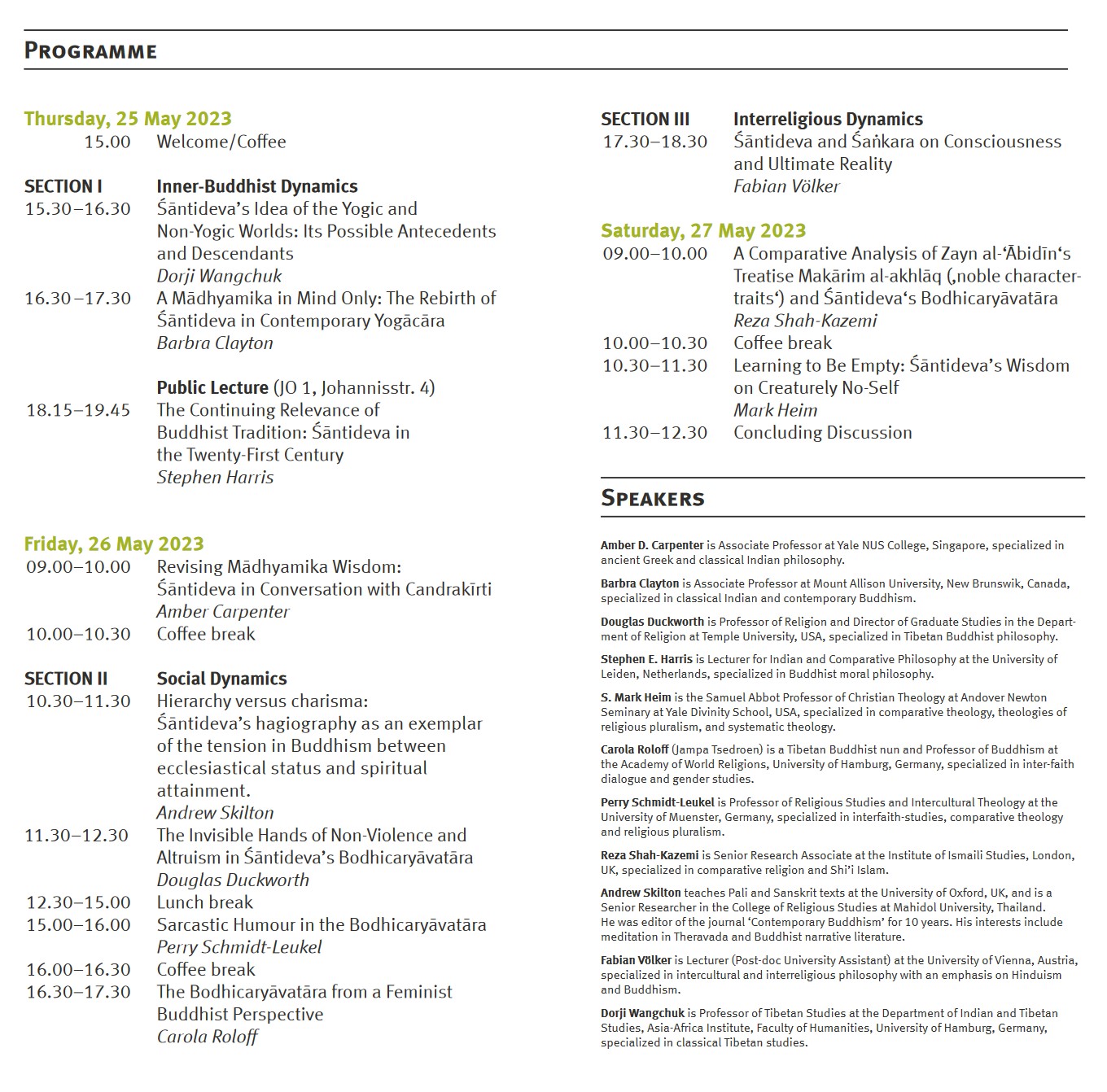Śāntideva and the Dynamics of Tradition
The Buddhist tradition is not only one of the oldest among the major religious traditions, but also exerted significant influence over a broad range of Asian cultures. Since the end of the 19 th century its presence in the West continues to increase. Today, Buddhism is one of the main forces in the cultural and religious dynamics of global exchange and interpenetration.
“Śāntideva” is the name given by the Buddhist tradition to the author of two highly revered texts: the Bodhicaryāvatāra (an introduction to the way and ideal of a Bodhisattva) and the Śiks.āsamuccaya (an anthology of traditional Buddhist texts closely related to the Bodhicaryāvatāra). Śāntideva’s (c. 8 th or 7th ct.) texts reflect a particularly vibrant period of Indian Buddhism. Firmly rooted in the tradition, they simul- taneously display a form of Mahāyāna Buddhism that is at the threshold of undergoing significant transformations such as the growth of its Tantric and Pure Land variants.
The conference brings together a group of renowned researchers within the international field of Buddhist and Interreligious Studies with a particular focus on Śāntideva. They will look at three crucial aspects of religious dynamics discernible in Śāntideva’s work: How is his presentation of Buddhism to be seen within the larger context of inner-Buddhist developments, including its relevance for pressing contemporary issues? Which social dynamics are visible in his writings and what do they reveal about Śāntideva’s understanding of human beings? And finally, what kind of dynamics may his writings trigger within the contempo-rary global process of inter- religious encounter?
In subsequent centuries Śāntideva’s writings became rather influential in large parts of the Buddhist world, especially in the Tibetan cultural realm. The 14th Dalai Lama has repeatedly referred to the Bodhicaryāvatāra as one of the main sources of inspiration for his personal life. Today, Śāntideva attracts an extraordinary measure of global interest, both in the areas of philosophical ethics and of lived Buddhist spirituality. By now, the Bodhicaryāvatāra is among the most often and most widely translated Buddhist text ever. In terms of religious dynamics, it represents a prime example of a long-living and particularly powerful manifestation.


